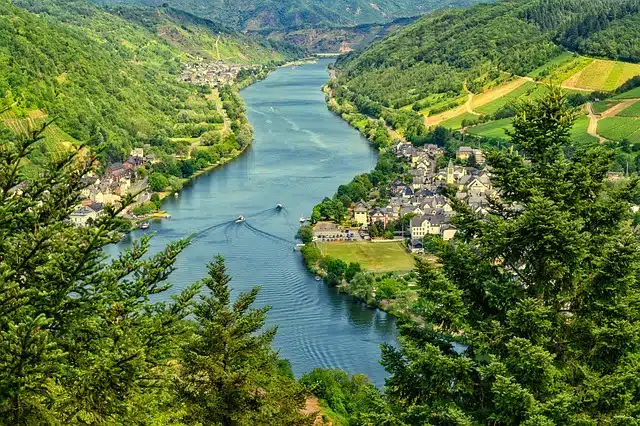
A river is a natural and continuous flow of water.
The term river comes from the Latin rius . It is a natural continuous stream of water that flows into another similar stream, into a lake or into the sea. When one river flows into another, it is known as a tributary .
Each river has a certain flow , which is not usually constant throughout the year. In periods with greater rainfall, the flow increases. On the other hand, when there is little rain or high temperatures , the flow decreases and, even in extreme situations, the river can dry out.
Classification of rivers
A river can be: perennial , when the watercourse is located in areas with abundant rainfall or where sufficient phreatic feeding is recorded; seasonal , when it is located in regions where the seasons are very different and the climate is Mediterranean type; transient , when it is located in areas with a dry or desert climate; or allochthonous , when it is located in an arid area and its waters come from other, rainier regions .
Another possible classification of the river is according to its geomorphology. A straight river has a low sinuosity and has a single channel. An anastomosing river, on the other hand, has multiple channels and a large transport and sedimentation capacity . Finally, a meandering river has high sinuosity and a single channel.
The longest river in the world is the Amazon , 6,800 kilometers long , followed directly by the Nile , 6,450 kilometers long.

The River Thames runs through London.
About effluents
According to hydrology, an effluent (also called distributary ) is a spread of water from a river or lake, which can be natural or created by humans. The point at which both streams divide is called confluence , and the flow of the effluent is always less than that of its predecessor . When it is a case that occurs in nature, it is mostly born at the mouth of a river, although there are examples of distributaries that arise from other points.
It is worth mentioning that man-made effluent is more common than natural effluent; Its objective is usually the provision of water from a river far away from a civilization, to irrigate plantations or for personal consumption. Curiously, although the concept of distributary is opposed to that of tributary, it can happen that the same course fulfills both functions, if on the opposite side of its source it flows into a second river.
Some of the best known effluents are:
* the Atchafalaya River, which flows from the Mississippi, in the North American state of Louisiana;
* the Teton , which is also found in the United States, and which gives rise to two other distributaries, which finally flow into the Henrys Fork River;
* the Casiquiare River, which originates from the upper Orinoco, and which represents the largest river on earth that connects two others of great importance, such as the Amazon and the Orinoco;
* the most important effluents of the Rhine River, which are the IJssel , the Waal and the Nederrijn ;
* the Tärendö , a Swedish distributary that has its origin in the Torne river and flows into the Kalix;
* the only two effluents of the Nile River, that is, Damietta and Rosetta . Some studies claim that in the past there were seven, and all of them have received their own name, despite not existing today.
Another meaning of the term river
Outside of geography , any great abundance of a liquid thing is usually described as a river ( "Rivers of ink have been spent to write about the president's life" ).
By extension, this is what the abundance of anything else or even people is called ( "A river of people formed in front of the stadium doors" ).
